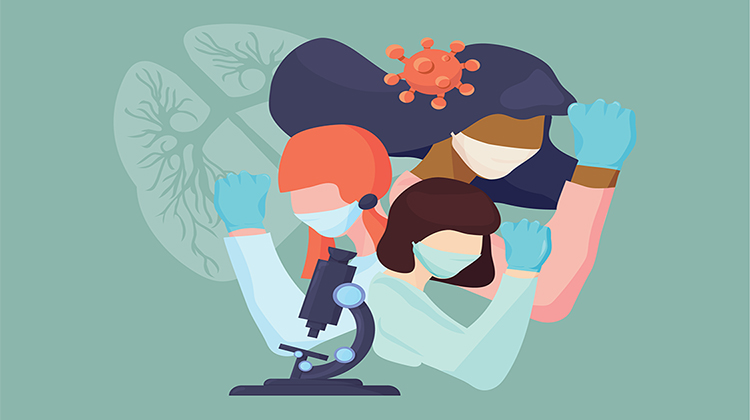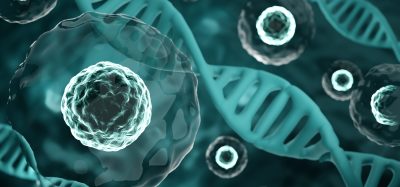Women in Stem with Dr Beate Mueller-Tiemann
Posted: 19 February 2024 | Dr Beate Mueller-Tiemann (Cytiva), Taylor Mixides (Drug Target Review) | No comments yet
Introducing Dr Beate Mueller-Tiemann, whose journey spans continents and disciplines, with a passion for biochemistry and molecular biology since her high school days. From elucidating pivotal proteins in cancer to monoclonal antibody discovery, Dr Mueller-Tiemann’s contributions have not only transformed our understanding of diseases but have also fuelled research in cell and gene therapies. Dr Beate Mueller-Tiemann’s journey epitomises the transformative power of perseverance in STEM, inspiring us to create a more inclusive environment for women in science.


Can you tell us about your journey in the field of STEM and the challenges you encountered along the way?
I always found science fascinating, but I really fell in love with it in high school when I was introduced to biochemistry and molecular biology. It was then that I knew I wanted to dedicate my career to science. I studied and conducted research in Germany, France, Switzerland and the US. Throughout my career, I have had the privilege to apply what I learned from my research to help advance the life sciences industry. It’s humbling to know the work you do every day can have a positive impact on the lives of patients around the world.
What inspired you to pursue a career in STEM, and how did you overcome any obstacles or biases you may have faced?
Biochemistry and molecular biology fascinated me in school. I loved learning how to explain at the molecular level what was happening in nature, in human beings and disease settings. A pivotal moment for me was when I realised that if I understood disease mechanisms on a molecular level, I could be part of an industry that helps develop medicines/therapies for those who need them most.
I spent many years researching and identifying new molecules with pharmacological activity. That experience gave me an appreciation for the complexity of drug discovery and the challenges associated with the optimization of molecules. There are many failures and setbacks in drug discovery, and you need a lot of resilience to keep going. For me, it was always about the patients. Knowing that the work I was doing could potentially provide a new or improved treatment options helped me to persevere.
Could you share an example of a specific project or research that you have worked on and the impact it has had in your field?
I did my PhD project on elucidating the role of the p53 protein that is relevant in many cancers. In the early 1990’s we did not fully understand what this protein was and how it worked. Together with many fellow researchers globally, in academic and industry laboratories, we demonstrated that, and more importantly, how p53 worked as a tumour suppressor molecule. Today the understanding of the central role of this tumour suppressor protein p53 is textbook knowledge and is being taught in high school biology classes.
How has your research in STEM contributed to advancements or improvements in your field, and what potential future applications or implications do you foresee based on your work?
During my professional career in the biopharma industry, my research was aimed at discovering, developing, and accelerating new and innovative treatments for patients in need. I am proud to have contributed to the advancements in monoclonal antibody discovery and development. One of the teams I was humble to lead was the first to bring the development of cell lines for monoclonal antibody production to the critical path in the drug development workflow.
If you are passionate about science and technology GO FOR IT! BECOME A ROLE MODEL!
In the early days of my biopharma career, I was able to industrialise the production of recombinant proteins for drug discovery purposes, by parallelising, miniaturising and automating protein expression and purification workflow. This made significant impact on accelerating lead discovery in the pharmaceutical industry.
As a woman in STEM, what unique perspectives or strengths do you believe you bring to your work?
First of all, I am very passionate about my work and the science, technology, and innovation I have had the privilege to be involved in. This is important because it provides me with the motivation and resilience to overcome the inevitable challenges and obstacles. A certain amount of tenacity and energy is also required if you want to keep pushing the boundaries. One of my greatest strengths is my ability to engage and inspire my co-workers and teams. In science and technology, discoveries are rarely made by individuals alone, but mostly by great teams working together and bringing different skill sets and approaches to find new solutions. The ability to lead in an inclusive manner allowing all voices to be heard is important for success in this field, like in many others.
What advice would you give to young women who are considering a career in STEM but may be hesitant due to societal stereotypes or perceived challenges?
My advice to young women who are considering a career in STEM has always been: if you are passionate about science and technology GO FOR IT! BECOME A ROLE MODEL! I have seen so many young women excel in this field and their success was driven by energy, passion and competence.
How do you see the representation of women in STEM changing over the years, and what further progress do you believe is needed?
I see that things have moved over the last 25 years toward a better representation of women in STEM, which is great. However, we have not overcome the stereotypes that may deter girls from pursuing a career in this field. We must encourage and expose girls to STEM education in their early school years. It is important to convey to girls that it is cool to ask questions about how things are functioning and that they can be proud if they get great grades in math, physics or chemistry.
In your opinion, what can organisations and institutions do to create a more inclusive and supportive environment for women pursuing STEM careers?
It is important to set aside time in companies to introduce girls to role models and exciting job profiles in STEM. I have always been passionate about mentoring women who want to pursue their careers in this space. Companies should support this consistently by engaging in such programs.
Looking ahead, what exciting developments or advancements do you foresee in your field of STEM, and how do you envision your own research contributing to those future innovations?
What excites me is the progress the biopharma industry is currently making in the field of cell and gene therapies, especially inducible stem cells. I am proud to say that I am one of six women leaders in the Danaher Corporation representing this field, which shows that indeed women are there to push the frontiers of science and technology! Stay tuned!
About the author


Chief Technology Officer, Cytiva
Dr Beate Mueller-Tiemann’s career has reflected the entire pharma value chain from early target discovery, lead generation, lead optimisation, cell line development, chemical manufacturing and control (CMC) production and commercial manufacturing for both Biologics and Synthetic Molecule therapeutics.
She applies her extensive experience in building R&D pipelines and her unapologetic optimism in science and technology to her leadership, as her teams create and bring high-quality products and innovative manufacturing and R&D processes closer to patients. Beate joined Cytiva in early 2023, having held senior leadership positions at Sanofi and Bayer.
A former athlete who held the 800-meter record at Fort-Le-Boeuf school district for decades, she believes in setting the pace and measuring performance. She finds inspiration in her diverse teams, when she sees the power of differing perspectives, experiences, opinions, and ideas being unleashed.
Beate earned her PhD at the Leibniz Institute of Virology in Hamburg, Germany in the field of Molecular Oncology. She holds master’s degrees in biology and Biochemistry from the University of Bielefeld, Germany, and the University of Montpellier in France.
Beate is an elected member of the Board of the Dechema, German Society for Chemical Engineering and Biotechnology. She supports female talents with mentoring programs and is a member of FiDAR, an association that works towards increasing the representation of women on German corporate boards.
She is based in Frankfurt, Germany.
Related topics
Cell Cultures, Cell Line Development, Cell Therapy, Drug Delivery, Drug Development, Drug Discovery, Gene Testing, Gene Therapy, Molecular Biology
Related organisations
Cytiva
Related people
Dr Beate Mueller-Tiemann (Cytiva)








